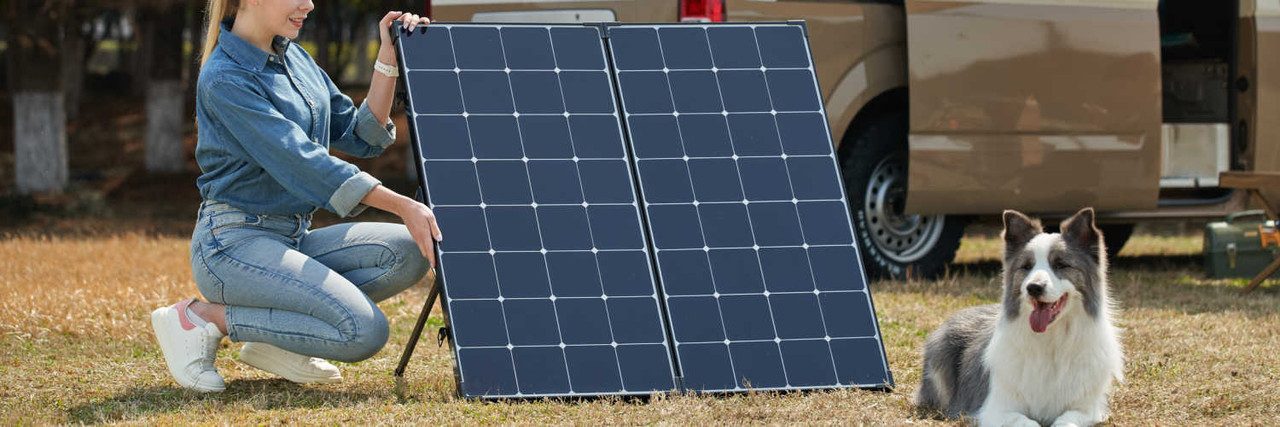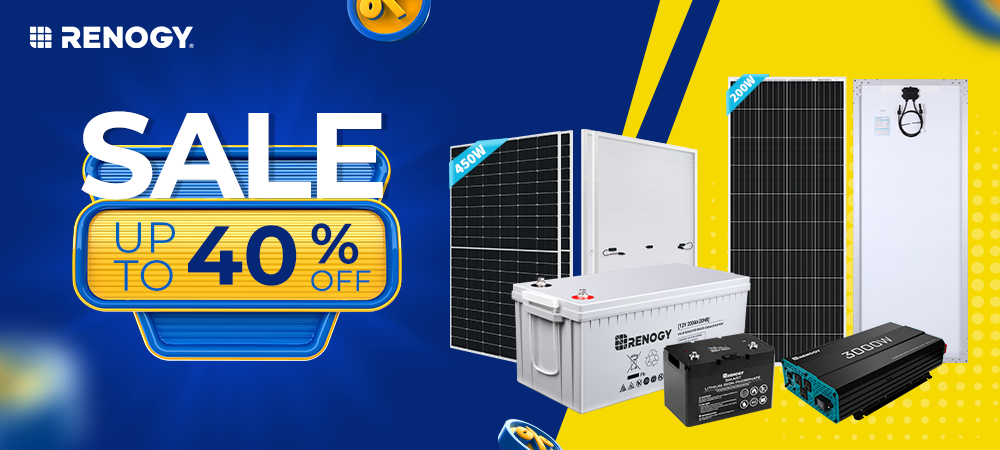Things You Need to Know About RV electricity
Power (what most refer to as electricity) is an essential component of running a recreational vehicle (RV). Without it, you wouldn't be able to operate most of the appliances or electronics that make RVing so enjoyable. Solar energy is becoming one of RVs' most popular sources of off-grid power. It's clean, renewable, and becoming more affordable. With a little planning, it can easily provide enough power to keep your RV functioning without any outside electricity source.
This blog post will cover the basics of electricity use and solar energy for RVs while also giving you some things to consider before making the switch. Whether you're a full-time RVer in a motorhome, a fifth-wheel, a bumper-pull, or even a weekender, going solar can help you save money and reduce your reliance on the grid. Let's take a closer look at power and solar for RVs.
How do solar panels work on RV?
Solar power captures photons from sunlight and converts them into usable electricity. Photovoltaic (PV) technology is the most commonly used type in RV applications. It uses thin panels typically mounted on the roof to capture sunlight and turn it into DC current. In addition, a complete RV solar panel system usually includes monocrystalline solar panels, one charge controller, one deep-cycle 12 volt battery, and one inverter. For more detail, you can check out How Solar Panels Work: Breaking It Down For Beginners.
If you have a larger need in electricity, you will need more solar panels or batteries. That being said, when creating your solar setup, it's essential to consider your RV's power needs.
How much electricity does an RV use in a month?
Figuring out how much electricity an RV uses in a month can be tricky, as usage depends on many factors. Some of the most important ones include what type of appliances are used, where the RV is located, and the activities it's used for. On average, most RVs use around 600 kWh each month.
This varies according to how what season it is, the size of the RV, etc. It's mainly a baseline number. If you're already in an RV, many RV parks can tell you exactly how much power you've been using since many of them individually meter each RV pad. With a commitment to making mindful decisions about electricity consumption, you'll soon get to know how much electricity your RV really needs.
How to get a power supply for RVs
The most common supply sources are what’s called Shore Power (a term they borrow from the boating industry) which is a pedestal at an RV park or someone’s house that is attached to “the grid,” a fossil fuel generator, or solar generators.
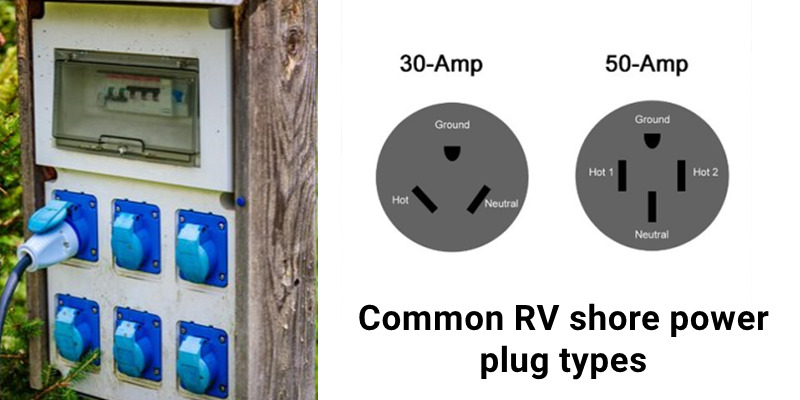
With the Green Mindset that many people are experiencing now as well as the advances in technology, solar is becoming more and more attractive as a primary power source. Nobody wants a complicated puzzle to solve when it comes to powering an RV. Solar-powered generator systems make it super simple to get solar power for RVs.
The solar powered generator for RV works by using the sun's rays to generate energy and converting the solar energy into power that your RV can use. This solar energy is then stored in a battery system for later use.
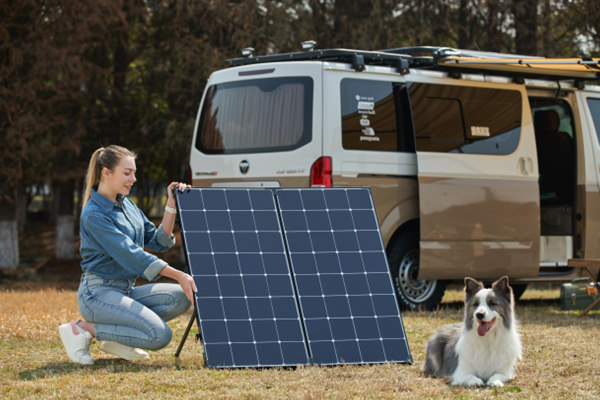
You no longer have to worry about unreliable power sources like campsite hookups or if you will have enough fuel with a diesel generator—all you need is sunlight for a few hours a day! Moreover, solar-powered setups are relatively inexpensive and efficient, so you don't have to worry about out-of-control costs or massive setup fees. Investing in solar should be your first choice when considering how to power your home away from home! You can find more information about solar panels for camping here.
Solar panels must be properly installed and maintained in order to work effectively
Installation and maintenance are key when it comes to getting the most out of solar panels. They must be installed properly to ensure their effectiveness and safety. A dodgy installation job could put your RV at risk for costly repairs down the line. Luckily we have plenty of material to aid you in installation and setup. Check out in Solar System Maintenance and Solar Panels Maintenance Best Practices And Costs.
Regularly checking up on them is also essential, especially when months of extreme weather pass by, since extreme heat and cold can cause extra stress. By doing regular checks, you can catch any small issues before they become major problems - and save yourself a lot of money. In short: solar panels must be carefully dealt with - but if you do that, you can reap all the benefits they have to offer.
How much solar power do I need for my RV
RVing is the perfect way to immerse yourself in the beauty of the outdoors while still having all the comforts of home. One key component of RVing is RV electricity, but how do you make sure you have enough solar power for your RV? When it comes to RV solar, calculate your RV’s total electrical needs and match it with an appropriately sized solar panel system. Renogy’s Solar Powered Calculator and newly developed Super Solar Calculator make the calculations a breeze.
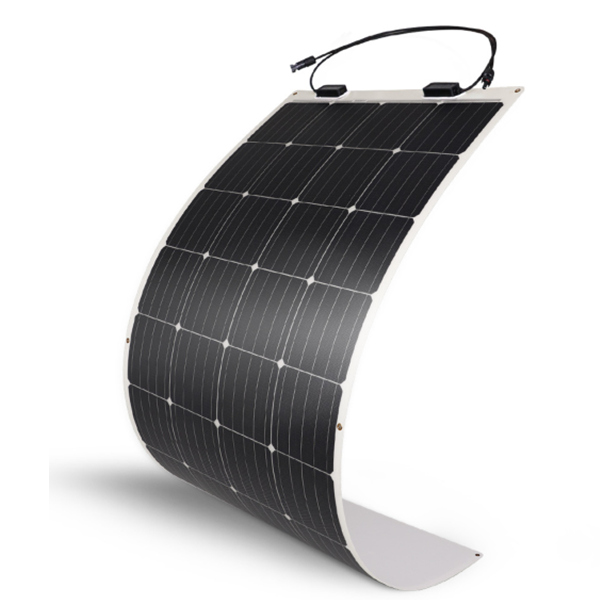
175 Watt 12 Volt Flexible Monocrystalline Solar Panel
Typically, a 175-watt RV solar panel kit can generate enough power to effectively run most RV accessories such as lights, water pump, and more. That being said, if you plan on using appliances like an A/C unit, fridge, or TV, or are just in a large RV, you will need more wattage.
You have to consider the size and shape of your RV roof to decide how many panels you can install. Many newer RVs come already wired for solar systems; some even have existing roof mounts and solar charge controllers built in. You will need to know the specs for these before choosing the correct equipment.
The size and weight of your batteries are also important factors when considering solar for your RV. Lead-acid batteries tend to be heavy, but they're still the most common due to their affordability. Lithium-ion (Li-ion) batteries offer a lighter-weight alternative with higher energy densities than lead-acid batteries. Still, they come at a higher price tag. The number of batteries will depend on the size and type of panel used as well as how much energy storage capacity is needed in order to meet your power requirements when staying off-grid or during periods with low sun exposure levels.
In addition to choosing between different types of batteries, you need to look at charge controllers as well as inverters that convert DC current into AC current – both necessary components in any solar power system setup.
We have many articles on our site to make this as easy as possible. For example:
How Many Solar Panels Do I Need?
How Much Solar Do I Need For My RV?
Conclusion
Having a reliable solar setup for your RV gives you peace of mind. Knowing that even when you're completely off-grid, you won't have any issues powering necessary appliances such as fridges or computer equipment. All without dealing with large, loud, and smelly fossil-fuel generators. By factoring in things such as power consumption, type/number/size/weight of batteries used, charge controller specs and inverter capabilities can help ensure that whatever system you use meets all the needs for powering your RV both now and for years down the road!
If you're ready to take the plunge into solar power for your RV, congratulations! You'll be joining a growing number of people who are interested in reducing their dependence on fossil fuels. Solar power is a great way to save money on your energy bill, and it's also good for the environment. Renogy has everything you need to equip your RV with solar. We have a wide variety of products to choose from, so you can find the perfect system for your needs, for instance, portable solar panels for rv, pure sine wave inverters, lifepo4 batteries and more. Check out our products today and get started saving money and helping the environment simultaneously!
Related articles:
How to Run RV Air Conditioning Off Solar
Our Vintage Rig Gets a Modern Solar Upgrade & Solves Two Nagging Full-Time RVer Problems
Solar Generators for RV Camping: a Complete Guide

